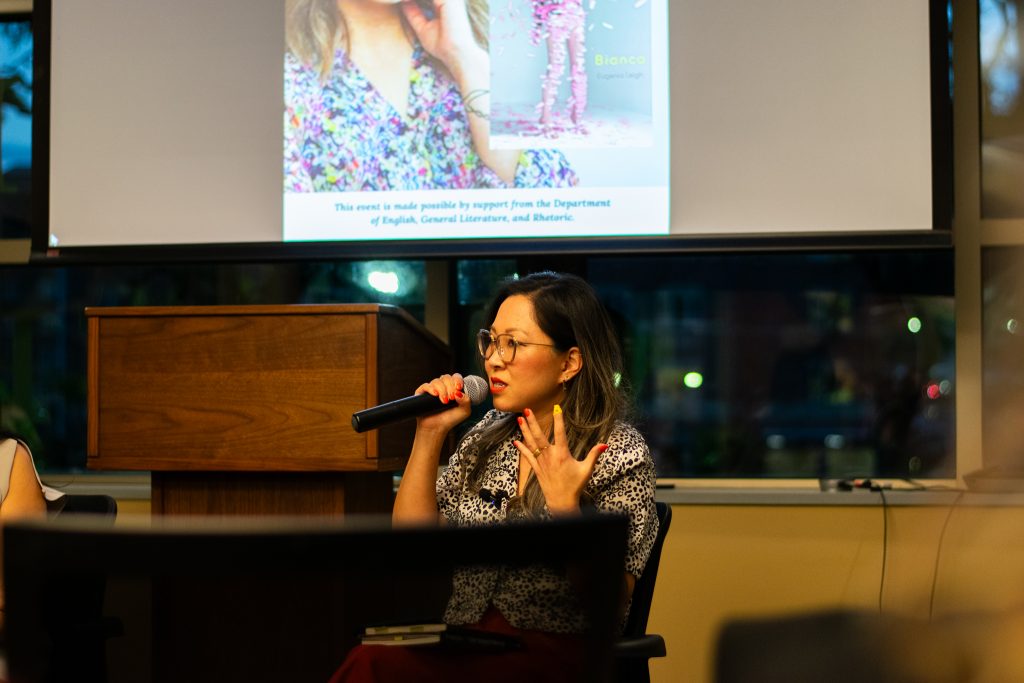Award-winning Korean-American poet and author Eugenia Leigh visited Binghamton University this past Wednesday for a poetry reading free to the public. The reading was held in a cozy and intimate setting in the Jay S. & Jeanne Benet Alumni Lounge as rain fell outside.
Leigh published her first collection of poems, “Blood, Sparrows and Sparrows” in 2014, which went on to win the Late Night Library’s Debut-litzer Prize in 2015. She published her most recent poetry collection “Bianca” in 2023. Leigh’s work has also achieved her a finalist spot in contests such as the National Poetry Series and the Yale Series of Younger Poets.
The event opened with Tina Chang, the creative writing director and an English professor at BU, introducing the poet. Chang played a big part in bringing Leigh to campus, as she is a poet and artist herself and taught at Sarah Lawrence College while Leigh was completing her Master of Fine Arts.
“Last year, some of the creative writing students expressed a great interest in inviting Eugenia to Binghamton University,” Chang wrote in an email. “I had had the great fortune of having read Eugenia’s poetry and to have also known her during my time living in New York City. Inviting her to Binghamton was a wonderful opportunity for her to reach our creative community.”
The night consisted of two parts — the actual reading where Leigh showcased four of her poems and a Q&A section led by both students and staff. Two works read included “My Whole Life I Was Trained to Deny Myself” and “My Husband Tells Me About a Man Who Doesn’t Kill Himself.”
The main focus of the night was on the poet’s most recent work “Bianca.” Leigh recounted the nine years and huge life changes between her two collections in the Q&A, mentioning marriage, the birth of her son and mental health diagnoses that helped her gain more insight into her experiences.
When asked about the reason behind the name “Bianca,” Leigh recounted that it was the name her friends in college gave her when she would show her “nightmare” side and to represent her struggle with drugs and alcohol. She described to the audience how Bianca represented her past and while creating and revising this collection, she felt close to her old self yet removed and in control of who she used to be.
“I see many creative writing students grapple with very difficult subject matter in their work,” Chang wrote. “Eugenia handles very complex material with lyrical finesse and restraint. I think students of the craft would gain a great deal from understanding Eugenia’s delicate handling of potentially combustible material as she finds balance between intensity and grace.”
Leigh made it clear that her poems were autobiographical and were inspired by moments throughout her life, rather than some third-person narrator and also emphasized how poetry is a path to survival and brought her some of the best people in her life.
Jen DeGregorio, the associate director of creative writing, described the importance of poetry.
“Poetry, lyric poetry in particular, can do special work in illuminating human psychology because it is a literary form that offers a close-up view of a person’s inner life,” DeGregorio wrote in an email. “One way to think about a poem is as a drama of consciousness; the poet tracks the mind at work as it goes about making sense of the world around it — its experiences, memories, and impressions.”



